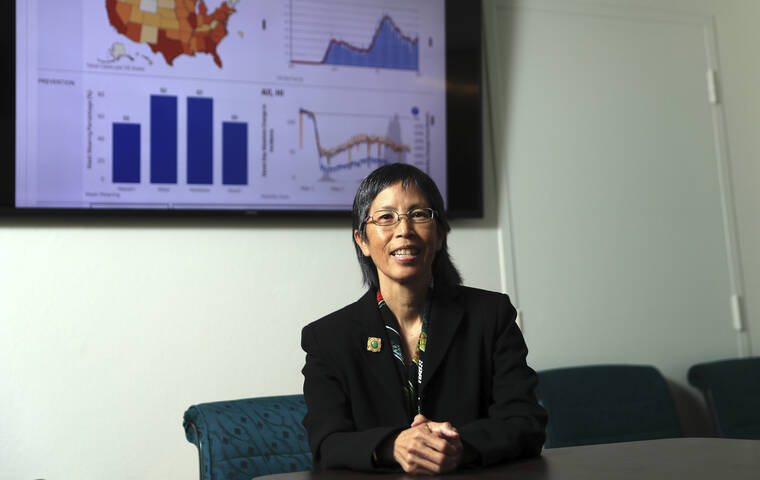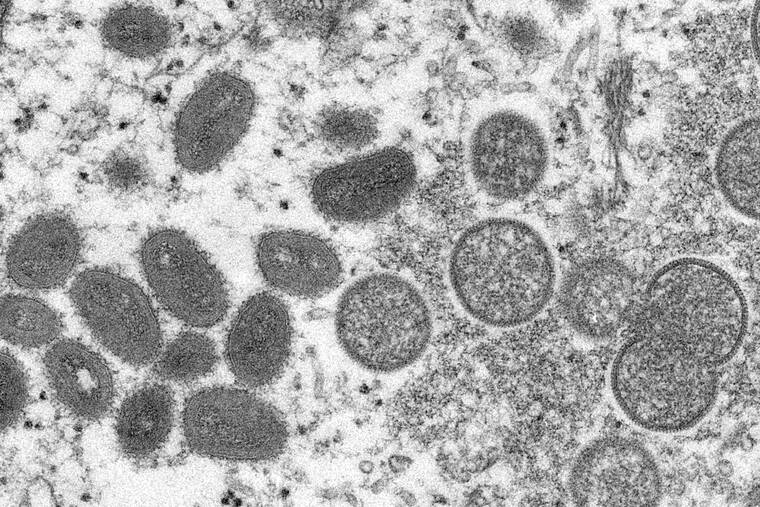The state Department of Health has identified a third probable case of monkeypox in Hawaii, and because the patient has no travel history connected to the disease, officials said it is likely spreading locally.
Health Department officials announced the latest monkeypox case in an adult on Oahu during a virtual news conference Thursday.
“This person does not have a travel history. The reason that’s significant is that it tells us that monkeypox is probably in our community,” said state Health Director Dr. Elizabeth Char during the news conference.
There is no known connection between the latest case and the first two cases on Oahu, although an investigation is ongoing.
The first two people in Hawaii with monkeypox in this latest outbreak were Hawaii residents on Oahu who had close contact with each other. In the first case, reported by the department June 3, a person had recently traveled to an area with confirmed cases.
That first case has been confirmed to be monkeypox by the Centers for Disease Control and Prevention, and the DOH is waiting for confirmation for the other two cases. Skin lesion samples are collected and sent to the CDC, which makes the final confirmation of the disease.
The latest case has not resulted in a hospitalization. So far, only the first person with monkeypox in Hawaii has had to be hospitalized, at Tripler Army Medical Center. All three have been adults on Oahu.
Health Department leaders said that the spread of monkeypox continues to be low in Hawaii for most residents because it is spread primarily through close contact.
“That’s really where the highest risk is — it’s when someone with an infection has contact with another person,” Char said.
The virus causing the disease also can be spread through droplets, so face masks can be helpful in prevention, Char added, but she didn’t go so far as to recommend that the public take any additional safety measures.
Contact tracing is ongoing for the cases, but it’s a lengthy process because the incubation period for monkeypox can be as long as 21 days, officials said.
“Just think back on
21 days, how many contacts you’ve had, how many people you may have kissed or have had contact with,” said DOH epidemiological specialist Joe Elm during the news conference. “It takes time to do
all these interviews. We’ve just got started, and we have a lot of people working on it.”
There are two vaccines that can reduce monkeypox symptoms, which include skin lesions, a fever, muscle aches, swollen lymph nodes and exhaustion. Contact tracing will help identify those at high risk of infection who might benefit from a vaccine.
Elm said vaccines were set to arrive in Hawaii on Thursday, and some of the contacts of the current cases have agreed to take them.
There were confirmed monkeypox cases in 16 states as of Thursday, according to the CDC, and in more than two dozen countries. Cases mainly, but not exclusively, involve gay, bisexual and other men who have sex with men.
“The LGBTQ+ community should be aware of the possibility of increased risk
and take precautions,” said state Deputy Epidemiologist Dr. Nathan Tan during the news conference. “These communities should avoid anonymous sexual contact or events where people may have close bodily contact with others.”






